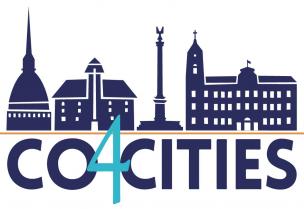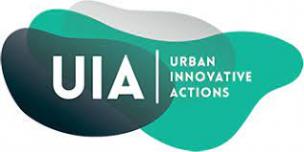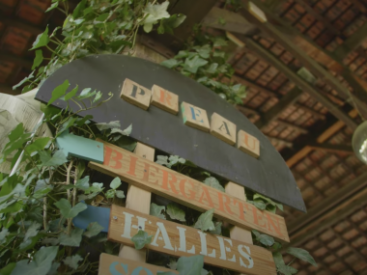-
-
Co-City
ItalyTurinThe collaborative management of urban commons to counteract poverty and socio-spatial polarisation
 Comune di TorinoCopy linkFacebookXLinkedInEmail886 837
Comune di TorinoCopy linkFacebookXLinkedInEmail886 837Summary
CO-CITY addresses the challenge of poverty in distressed neighbourhoods through the regeneration of under-utilised public spaces and assets, turned into places able to trigger a process of sustainable development. The regeneration projects are co-designed by the City and residents. Co-City counteracts social-spatial polarisation through spaces/assets’ regeneration, creating public-community partnerships, mutual trust, cooperation at the neighbourhood level.
CO-CITY implements “pacts of collaboration” according to the Regulation for the Governance of urban commons, co-designed with city inhabitants’ organisations. They stimulate organisation and define co-governance schemes for the regeneration of spaces hosting activities varying from community gardens; creative placemaking; capacity building processes; community hubs. These pacts are one of the most important co-governance tools increasingly adopted by Italian cities since 2014 to promote and enable the urban commons.
CUMIANA15 pact foresees the transformation of a former car-manufacturing factory requiring significant physical renovation into a hybrid indoor-outdoor space functioning as a cultural-creative activities community hub. The implementation of a new administrative model rooted in the “pacts of collaboration” and the “Regulation for the Governance of Urban Commons” aiming at empowering inhabitants in the care of urban spaces fostering reciprocal commitment to urban justice.
The innovative solution
CO-CITY addresses urban poverty turning dismissed infrastructures and public land into hubs of neighbourhoods inhabitants’ collective action. It turns them into “urban commons”, contributing to the establishment of civic and entrepreneurial activities leveraging inhabitants’ participation stimulated by the City and facilitated by the Neighbourhood Houses acting as local co-governance units.
Main solutions implemented include: co-design and co-governance innovative process. The city created an integrated administrative structure to ensure an integrated approach; building and management of the pact of collaboration to accelerate inhabitants’ organisations empowerment in turning public spaces into engines of neighbourhood revitalisation; diversified tools, no one size fits all solution. Resources allocated through a call for proposal foreseeing three measures:
a) peripheries and urban cultures;
b) under-utilised infrastructure, with a focus on schools;
c) civic care of public spaces.
A collaborative and participative work
The project partnership is composed by: the network of Neighbourhood Houses, local community hubs that took care of community building activities; the University of Turin, contributing to the project’s research and theoretical framework; the National Association of Italian Municipalities, in charge of communication and networking.
50 pacts of collaboration between the City Administration and citizens’ organisations have been signed. The pacts regulate caring for public spaces and many socio-cultural activities. The participative process is focused on two moments:
- Co-design. All the feasibility issues are fine tuned and finalised.
- Co-management. The City and the involved organisations share decision-making and responsibilities.
The impact and results
The most important project challenge has been the use of a totally new juridical tool (the pact of collaboration) that resulted in a collective learning effort by all the stakeholders involved. This relied on a solid local background and tradition of community engagement which is mainly represented by the local network of Neighbourhood Houses.
The project’s implementation has contributed to the development of mutual trust and social inclusion.Both public officers (24 city departments, 90 officers) and active citizens (more than 214 organisations) involved in the project implementation consider positively the enabling role of CO-CITY as a way to innovate policies and practices, unlocking the potential of urban development.
Among the different pacts, the one of CUMIANA15 can be mentioned - a hybrid space (half renewed industrial building, half covered square), now co-managed to become a new socio-cultural hub.Why this good practices should be transferred to other cities ?
Cities and citizens play a pivotal role in the EU policy framework tackling climate change and mission-oriented innovation. The European Green Deal and the linked H2020 EGD call both stress the importance of public-community cooperation. The Horizon Europe cities mission foresees a climate neutral city contract. The JRC City Science Initiative considers public-community partnerships a cross-cutting policy tool.
CO-CITY pacts enable inhabitants’ organisations to work closely together and with City officials, reinforcing trust in institutions, social cohesion, long-term commitment of the entire administrative machine. They were critical in keeping urban spaces safe and alive during the pandemic. Social bonds created by the pacts helped preserve the social interaction.
CO-CITY pacts are able to bring together city communities, governments, knowledge institutions, social and private operators. The so-called quintuple helix urban co-governance approach aims at stimulating neighbourhood cooperation. CO-CITY is a good guidance for policymakers and social actors wishing to build public-community cooperation.
Each civic deal sanctioned in the CO-CITY pacts could be implemented in every neighbourhood. Several EU cities are already building on similar institutional design principles and co-design methodologies their own urban co-governance policy. Regenerated spaces like CUMIANA15 show how these forms of self-organisation could be self-sustainable.Main ThemeIs a transfer practice1 -
-
-
-
-
-
-
-














